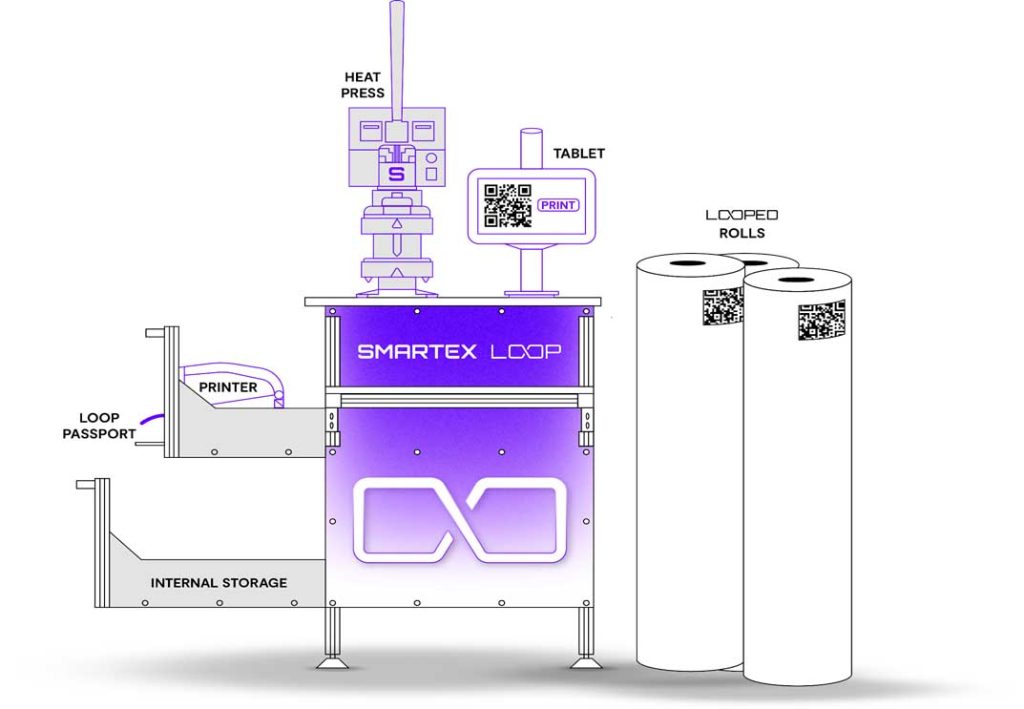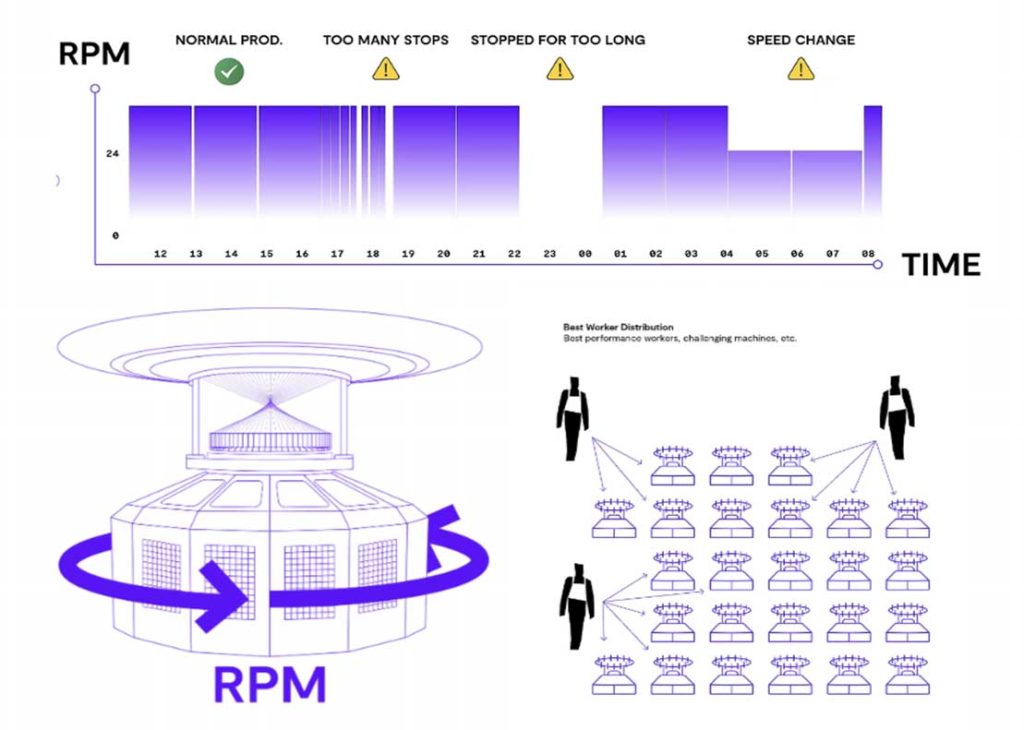Smartex solves fundamental problems impacting the global textile supply chain. Their AI-based solutions are eliminating waste at the source of the textile manufacturing chain. The company combines tailored hardware, vision software & machine learning algorithms that work together to detect all textile defects, enhance production performance, worker safety, transparency & save time, lessen sunk costs, CO2 emissions, water wastage, & much more!
Interview with Camila Luz, Head of Marketing Operations at Smartex.
Easy Engineering: A brief description of the company and its activities.
Camila Luz: Smartex reduces defective output to close to 0%, while at the same time providing quality control software, clearly outperforming the current product inspection mechanisms, mainly made by workers looking at textiles all day long.
Our team is focused on bringing the Industry 4.0 Revolution to the Textile Industry, providing cutting-edge technology to this US$3 trillion sector. We truly believe in continuous efficiency improvement by delivering cutting-edge technology to a relevant sector.
Smartex’s machine-vision software uses a large number of images to detect textile defects in real time. This allows the system to accurately identify and flag defects, which in turn reduces textile waste, CO2 emissions, energy, water, and capital expenditure across the textile industry.
We chose the textile and fashion industry because it is the 3rd most polluting industry in the world – producing a monstrous amount of textile waste each year. It is estimated that 150 billion garments are produced annually in this $3T industry which accounts for ~20% of global water waste and ~10% of global carbon emissions.

The textile industry also operates on thin margins and has a considerably high defect rate. The industry is currently dependent on human vision and manual inspection to detect textile defects. Smartex empowers textile manufacturers to take control of their production lines through real-time defect detection and data-driven analysis.
E.E: What are the main areas of activity of the company?
C.L: We produce hardware and software based products for the textile industry. Our early-stage detection spots all relevant types of defects produced by Circular Knitting Machines using artificial intelligence and machine learning algorithms. The Smartex system integrates into existing textile machinery with a seamless set of cameras and sensors. Their system pairs with a comprehensive software platform for factory management, article management, digital twins of textile rolls produced, and more. Smartex is dedicated to digitizing the textile industry by providing technical tools which will allow it to become more efficient, productive, and sustainable.
E.E: What’s the news about new products?
C.L: We launched Smartex LOOP, our new traceability platform at ITMA last month. Smartex LOOP provides operational benefits to knitters and dye houses while laying the foundations for higher quality, traceable data collection and communication in accordance with legislative, investor, and consumer demands.
For knitters, Smartex LOOP helps protect the value of their products by linking and maintaining evidence of each roll’s quality. Knitters can prove the quality of their product and resolve any quality disputes quickly.
For dyehouses, Smartex LOOP allows a preview of all incoming rolls with quality alerts to prioritize quality checks. This is a huge improvement from the current sample system of manual inspection of incoming rolls.
Finally, with growing pressure for fashion brands to map, report and perform due diligence across their supply chains – as well as possess data to back up any sustainability marketing claims they make – supply chain data has become a need, not a want. Smartex LOOP enables the capture and communication of “golden” data (objective, verifiable and real-time) in Tier 2 (fabric production and coloration), the highest impact step of the textile supply chain.
E.E: What are the ranges of products?
C.L: Smartex CORE – 100% automated inspection for circular knitting machines and comprehensive digital platform for all production details and management.

Smartex LOOP – Our traceability platform, partners you can trust, production you can trace.

E.E: At what stage is the market where you are currently active?
C.L: Our current focus is on the knitting stage of textile production because that is where the majority of early-stage defects occur and where we can also have the greatest impact. However, we have invested and are investing in research and development to enter other stages as well.
E.E: What can you tell us about market trends?
C.L: Sustainable and Eco-friendly Practices: There is a growing emphasis on sustainable and eco-friendly practices across the textile industry. Consumers are increasingly demanding products made from recycled or organic materials, and manufacturers are adopting sustainable production methods to reduce waste, conserve water, and minimize environmental impact.
Digital Transformation: The textile industry is undergoing digital transformation, with the integration of advanced technologies such as artificial intelligence, machine learning, and automation. These technologies are being utilized for optimizing production processes, enhancing supply chain efficiency, and improving overall operational effectiveness.
Circular Economy and Recycling Initiatives: The concept of a circular economy is gaining traction in the textile industry. Companies are exploring ways to recycle textile waste, implement closed-loop production systems, and develop innovative recycling technologies to minimize waste generation and extend the lifespan of textile products.
Smart Textiles: The emergence of smart textiles, also known as e-textiles or wearable technology, is another prominent trend. These textiles incorporate electronic components and sensors into fabrics, enabling functionalities such as temperature regulation, activity tracking, and biometric monitoring. Applications range from sports and fitness to healthcare and fashion.
Traceability: The textile industry is witnessing a growing emphasis on traceability, driven by consumer demand for transparency. Traceability involves tracking and documenting the entire supply chain journey of textiles, from raw materials to finished products. It ensures ethical sourcing, quality control, sustainability, and regulatory compliance. By providing visibility into production processes, traceability enhances consumer confidence, strengthens brand reputation, and promotes sustainable practices. Technologies like blockchain and RFID enable the collection and sharing of data, facilitating transparent information flow across the supply chain. Embracing traceability allows textile companies to meet consumer expectations, demonstrate their commitment to sustainability, and differentiate themselves in the market.
E.E: What are the most innovative products marketed?
C.L: Smartex uses artificial intelligence and machine learning algorithms to prevent textile waste at the source. We have a proactive approach towards waste instead of reactive because around 80% of defects could be prevented in the knitting stage. Smartex CORE provides AI-boosted 100% automated inspection for circular knitting machines, digitizing knitting production and factory management within our platform.
Smartex LOOP provides physical, indestructible labels with qr codes for access to invaluable data which travels down the supply chain providing traceability and quality assurance. Leveraging the Smartex CORE camera system, Smartex’s AI Boost Tool also helps improve machine productivity without any loss in quality – giving Smartex-enhanced machines a real competitive advantage.
These tools are incredibly innovative within the textile industry and we will continue to build more essential tools for modern textile factories.

E.E: What estimations do you have for 2023?
C.L: 2023 has been the year of confirmation for Smartex. We had a great response at ITMA, the world’s largest textile trade show (we were present at 5 booths). We have been working with OEM’s such as Terrot, Unitex and Vahdet to sell AI-Upgraded Smartex-ready machines. We are already present in 14 countries and are successfully expanding to other important textile markets such as India and Bangladesh, among others. We already have several customers in Portugal and Turkey who have covered 100% of their production with Smartex technology. We want to continue growing and helping more and more factories to modernize their production while becoming more sustainable.

